
Discover the Enchanting Amalfi Coast
Nestled along the southern edge of Italy's Sorrentine Peninsula, Amalfi is a picturesque coastal town that offers a perfect blend of natural beauty, historical charm, and vibrant culture. With its dramatic cliffs that plunge into the azure waters of the Mediterranean Sea, Amalfi is a visual feast for any traveler. The town itself is a maze of narrow alleys and staircases, adorned with colorful houses and lush bougainvillea. Stroll along the waterfront promenade, where you can enjoy the sight of fishing boats bobbing in the harbor and savor freshly caught seafood at a local trattoria. Don't miss the Cathedral of St. Andrew, an architectural gem with its striking Arab-Norman design and stunning views from the top. Amalfi is not just about sightseeing; it's also about experiencing the local way of life. Visit the lemon groves that produce the famed Amalfi lemons, used to make the region's iconic limoncello. Take a boat trip to explore hidden coves and grottoes, or hike the scenic trails that wind through the surrounding hills. Each step you take in Amalfi reveals another layer of its rich history and captivating beauty.
Local tips in Amalfi
- Visit early in the morning or late in the evening to avoid the crowds, especially during the summer months.
- Wear comfortable shoes as the town is best explored on foot, and there are many stairs and steep paths.
- Try the local seafood dishes and don't miss out on tasting the famed limoncello.
- Take a boat tour to fully appreciate the stunning coastline and discover hidden gems like the Emerald Grotto.
- Consider visiting in the shoulder seasons of spring and fall for milder weather and fewer tourists.
Discover the Enchanting Amalfi Coast
Nestled along the southern edge of Italy's Sorrentine Peninsula, Amalfi is a picturesque coastal town that offers a perfect blend of natural beauty, historical charm, and vibrant culture. With its dramatic cliffs that plunge into the azure waters of the Mediterranean Sea, Amalfi is a visual feast for any traveler. The town itself is a maze of narrow alleys and staircases, adorned with colorful houses and lush bougainvillea. Stroll along the waterfront promenade, where you can enjoy the sight of fishing boats bobbing in the harbor and savor freshly caught seafood at a local trattoria. Don't miss the Cathedral of St. Andrew, an architectural gem with its striking Arab-Norman design and stunning views from the top. Amalfi is not just about sightseeing; it's also about experiencing the local way of life. Visit the lemon groves that produce the famed Amalfi lemons, used to make the region's iconic limoncello. Take a boat trip to explore hidden coves and grottoes, or hike the scenic trails that wind through the surrounding hills. Each step you take in Amalfi reveals another layer of its rich history and captivating beauty.
When is the best time to go to Amalfi?
Iconic landmarks you can’t miss
Amalfi Coast
Explore the breathtaking Amalfi Coast, a UNESCO World Heritage site known for its stunning cliffs, picturesque villages, and rich Italian culture.
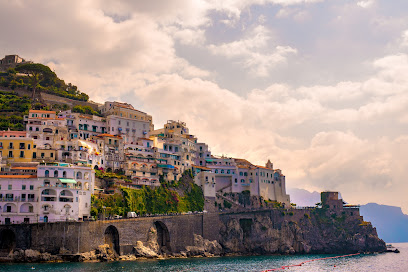
Villa Rufolo
Discover the enchanting Villa Rufolo in Ravello, a historical landmark boasting stunning gardens and breathtaking views of the Amalfi Coast.
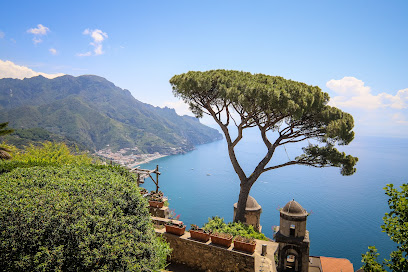
Amalfi Harbor Marina Coppola
Experience the breathtaking beauty and vibrant atmosphere of Amalfi Harbor Marina Coppola, your gateway to the stunning Amalfi Coast.
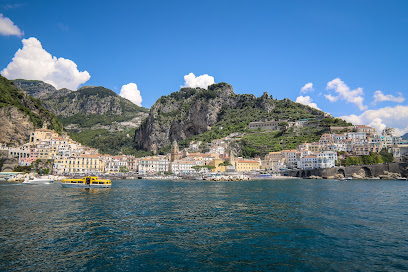
Museo della Carta
Discover the rich history of paper-making at Museo della Carta in Amalfi, a unique museum showcasing centuries-old artisan techniques and breathtaking coastal views.
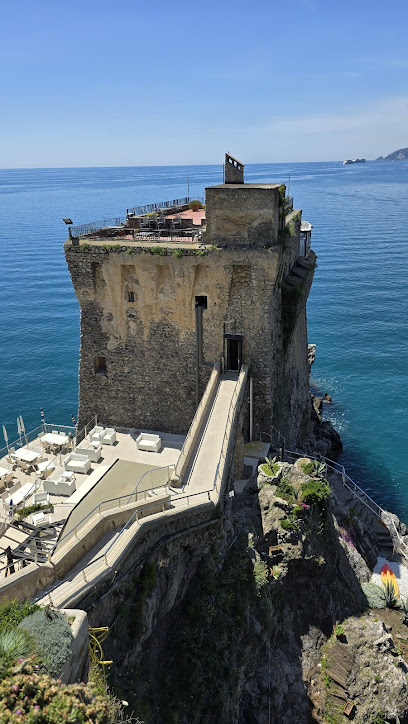
Duomo di Amalfi
Explore the Duomo di Amalfi, a stunning Catholic cathedral showcasing breathtaking architecture and rich history in the heart of Amalfi.
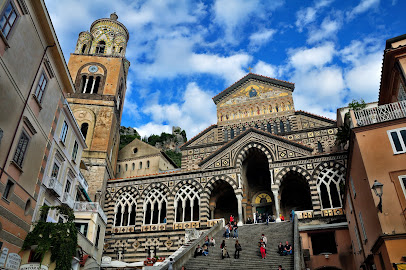
Costiera Amalfitana Positano
Explore the breathtaking beauty of Positano, a cliffside paradise on Italy's Amalfi Coast, filled with charming streets, stunning views, and rich culture.
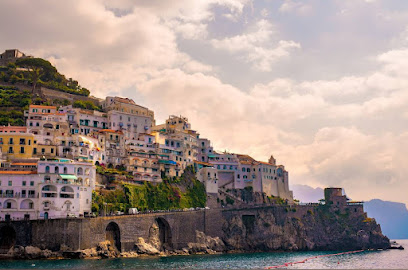
Torre dello Ziro
Explore Torre dello Ziro, a historic watchtower in Pontone, offering breathtaking views and scenic hiking trails on the enchanting Amalfi Coast.
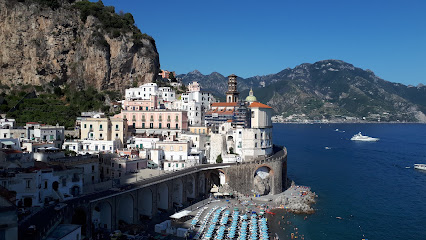
Lido Degli Artisti
Experience the breathtaking beauty and tranquility of Lido Degli Artisti, a stunning beach destination on the Amalfi Coast, perfect for relaxation and unforgettable moments.
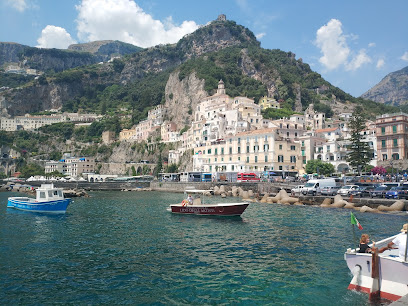
Castello Lauritano
Explore the enchanting Castello Lauritano, a scenic gem in Naples, where history and breathtaking views come together in perfect harmony.
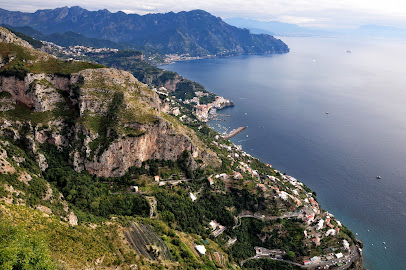
Lido delle Sirene
Discover the enchanting Lido delle Sirene on the Amalfi Coast, where sun, sea, and exquisite local cuisine meet in a captivating seaside experience.
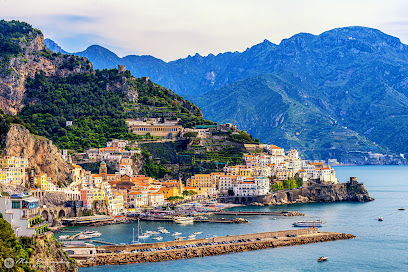
Saint Andrew's Fountain Amalfi
Experience the beauty of Saint Andrew's Fountain in Amalfi, a stunning Baroque masterpiece rich in history and local culture.
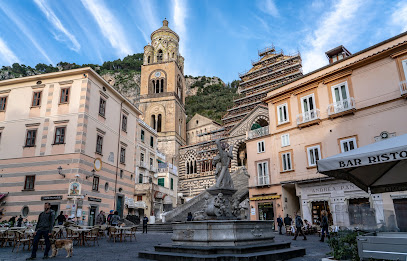
Antico Arsenale della Repubblica di Amalfi
Discover the maritime history of Amalfi at the Antico Arsenale della Repubblica, a historical museum showcasing the glory of the Republic's naval heritage.
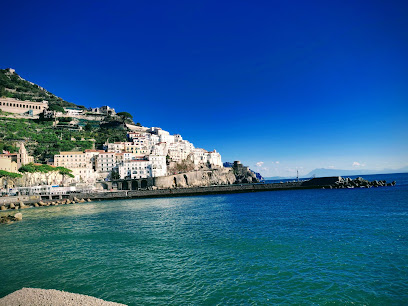
Chiostro del Paradiso
Explore the serene beauty and rich history of Chiostro del Paradiso, a stunning medieval cloister nestled in the heart of Amalfi's vibrant landscape.
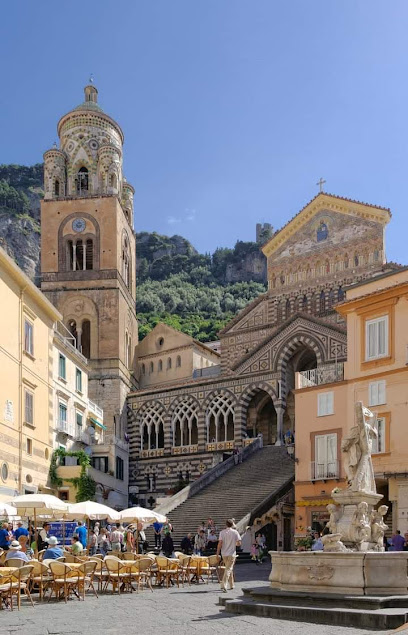
Amalfi Boat Tour S.r.l
Unveil the beauty of the Amalfi Coast with Amalfi Boat Tour S.r.l, your gateway to unforgettable sea adventures and breathtaking coastal views.
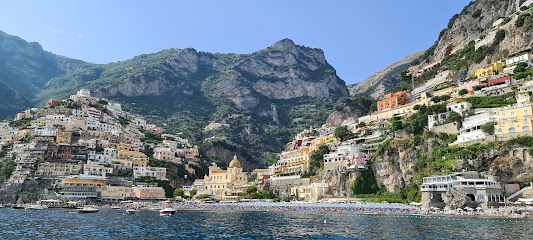
Villa Romana e Antiquarium
Explore the treasures of ancient Rome at Villa Romana e Antiquarium in Minori, a captivating archaeological museum showcasing rich historical artifacts.
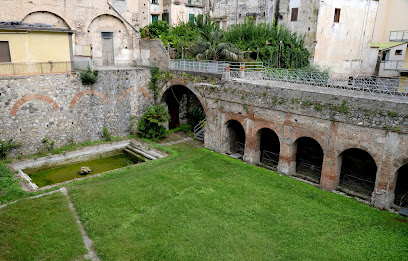
Unmissable attractions to see
Archaeological Park of Pompeii
Unearth the stories of Pompeii at the Archaeological Park, where ancient ruins and vibrant frescoes reveal the city's rich history.
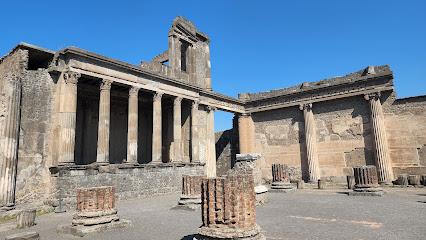
Sansevero Chapel Museum
Explore the rich history and stunning artistry of the Sansevero Chapel Museum in Naples, home to the iconic Veiled Christ and other Baroque masterpieces.
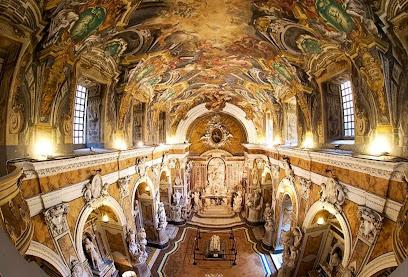
Ovo Castle
Discover the rich history and breathtaking views at Ovo Castle, an iconic landmark that embodies the spirit of Naples.
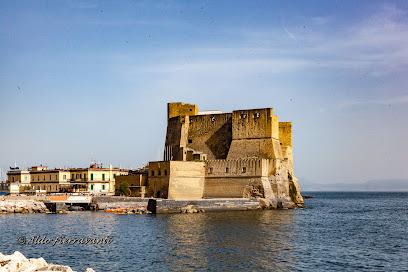
Vesuvius National Park
Explore Vesuvius National Park, where breathtaking views and rich history converge in the heart of Italy's iconic volcanic landscape.
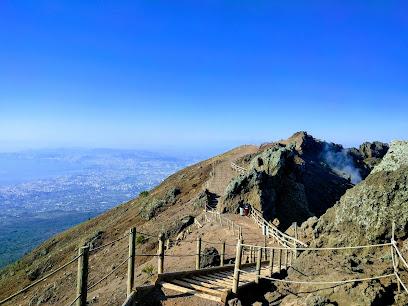
Museo Archeologico Nazionale di Napoli
Uncover the ancient treasures of Italy at the Museo Archeologico Nazionale di Napoli, a must-visit for history and art enthusiasts.
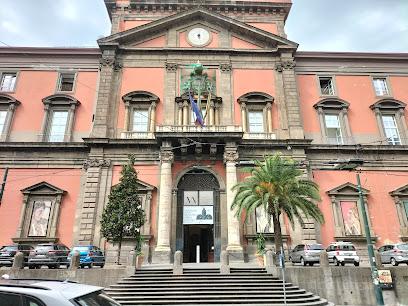
Castel Sant'Elmo
Discover the rich history and breathtaking views at Castel Sant'Elmo, a medieval castle in Naples that offers a glimpse into the city's vibrant past.
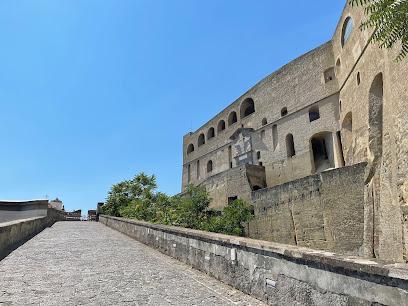
Castel Nuovo
Explore Castel Nuovo, a stunning medieval castle in Naples, showcasing rich history, breathtaking views, and captivating architecture.
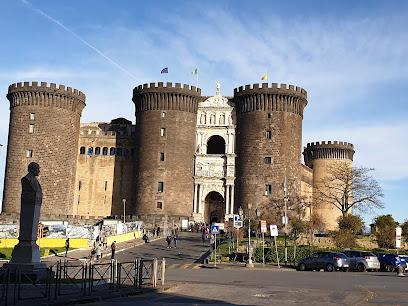
Museo e Real Bosco di Capodimonte
Discover the artistic and natural beauty of Museo e Real Bosco di Capodimonte in Naples, where history and nature intertwine.
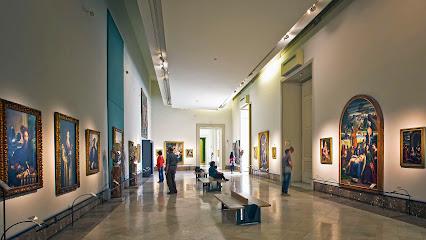
Underground Naples
Unravel the mysteries of Underground Naples, a captivating journey through history, ancient ruins, and wartime shelters beneath the vibrant streets of the city.
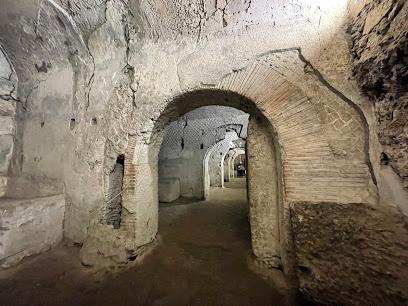
Archaeological Park of Paestum
Explore the wonders of ancient Greece at the Archaeological Park of Paestum, a UNESCO World Heritage site with stunning temples and rich history.
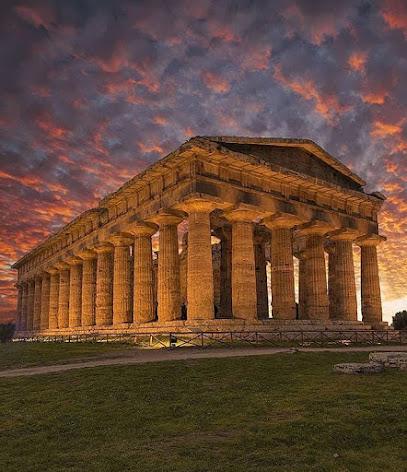
Duomo di Napoli
Explore the Duomo di Napoli, a stunning cathedral blending Gothic and Baroque styles, rich in history and vibrant local culture.
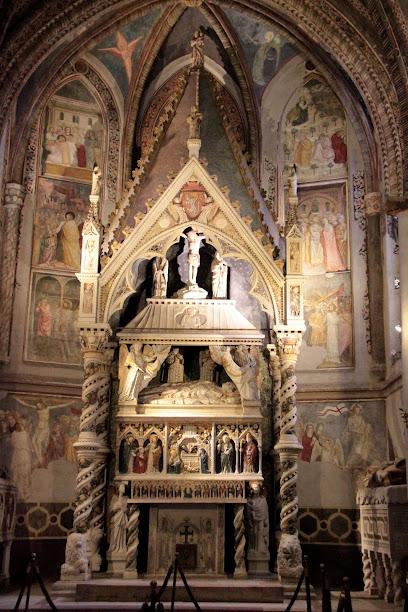
Villa Rufolo
Experience the historical charm and stunning views at Villa Rufolo, a must-visit landmark in Ravello, Italy, known for its exquisite gardens and cultural heritage.
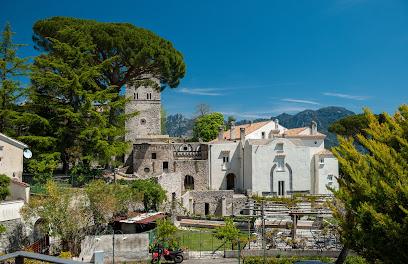
Chiesa del Gesù Nuovo
Explore the architectural beauty and rich history of Chiesa del Gesù Nuovo, a stunning baroque church in the heart of Naples.
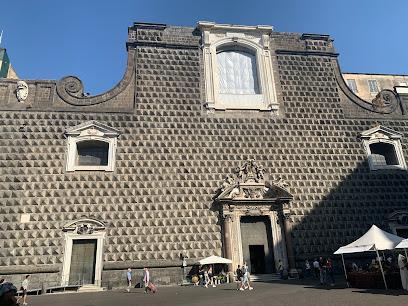
Complesso Monumentale di Santa Chiara
Explore the Complesso Monumentale di Santa Chiara in Naples, where Gothic architecture meets serene spirituality in a historical masterpiece.
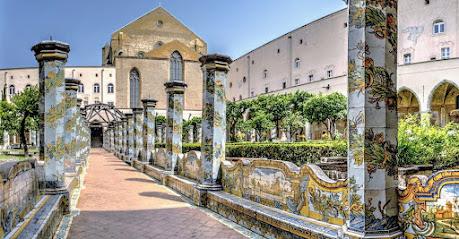
Murale Diego Armando Maradona - Quartieri Spagnoli
Explore the heart of Naples through the iconic Murale Diego Armando Maradona, a vibrant tribute to a football legend and cultural hero.
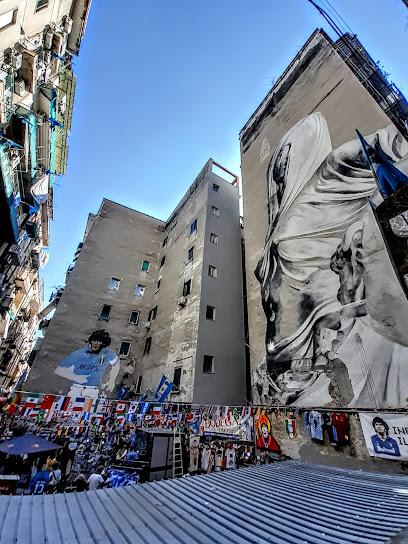
Essential places to dine
Pizzeria Donna Stella
Discover authentic Italian pizza at Pizzeria Donna Stella in Amalfi, surrounded by breathtaking coastal views and fragrant lemon trees.
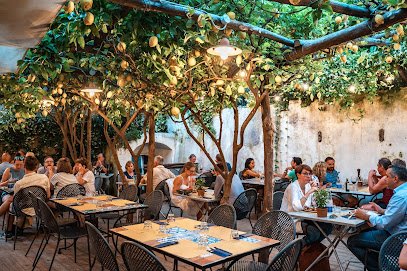
Da Maria
Experience authentic Italian cuisine at Da Maria in Amalfi, where delicious pizzas and fresh seafood await amidst stunning coastal views.
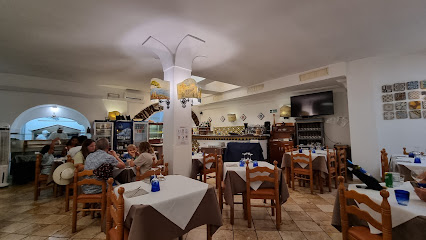
Lo Smeraldino
Experience authentic Mediterranean flavors at Lo Smeraldino in Amalfi – where fresh seafood meets breathtaking coastal views.
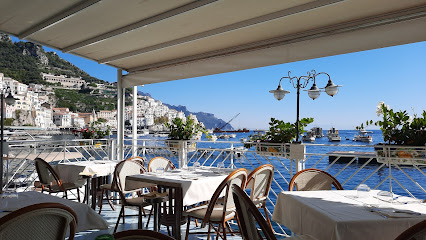
Da Gemma
Experience authentic Italian flavors at Da Gemma in Amalfi, where exquisite seafood meets breathtaking coastal views.
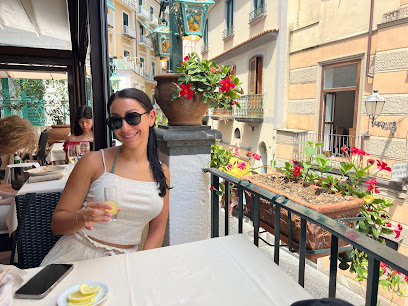
Ristorante L'Abside
Experience authentic Italian cuisine at Ristorante L'Abside in Amalfi – where fresh seafood meets breathtaking Mediterranean views.
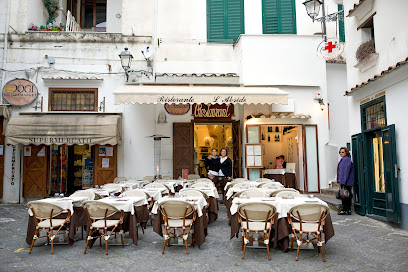
La Taverna del Duca
Experience authentic Italian flavors at La Taverna del Duca in Amalfi, where culinary excellence meets breathtaking coastal views.
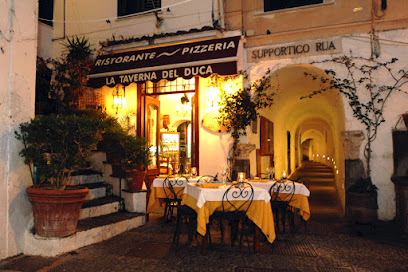
Trattoria dei Cartari
Experience authentic Italian flavors and fresh seafood at Trattoria dei Cartari in Amalfi's enchanting atmosphere.
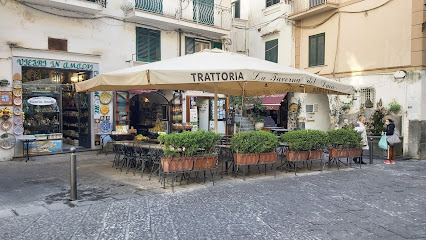
Marina Grande
Experience authentic Southern Italian seafood at Marina Grande on the stunning Amalfi Coast.
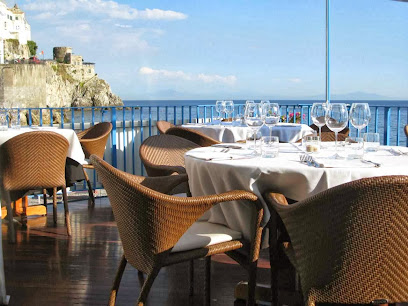
Da Ciccio Cielo Mare Terra
Experience exquisite seafood and Italian cuisine at Da Ciccio Cielo Mare Terra on the breathtaking Amalfi Coast.
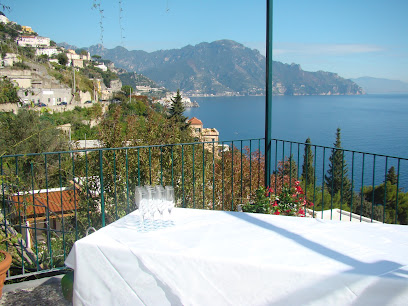
Taverna Buonvicino
Experience authentic Mediterranean seafood at Taverna Buonvicino in Amalfi - where tradition meets taste.
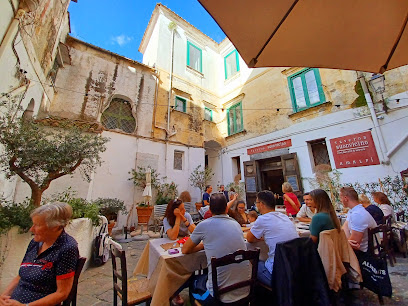
Amalfi Terminal
Discover culinary delights at Amalfi Terminal, where local flavors meet modern dining in a stunning coastal setting.
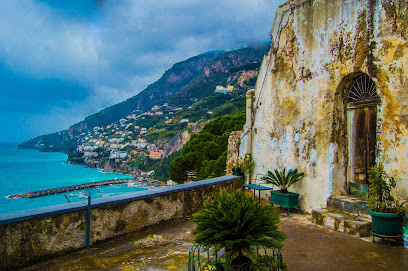
Tarì Art Restaurant
Experience authentic Italian cuisine at Tarì Art Restaurant in Amalfi - where tradition meets breathtaking Mediterranean views.
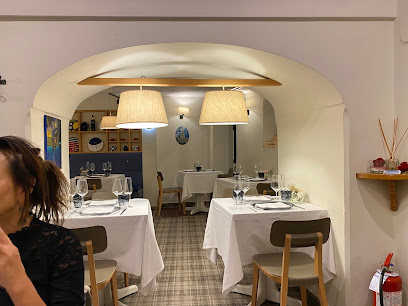
B&B Al Pesce d'Oro
Experience culinary delights at B&B Al Pesce d'Oro - your cozy retreat on the stunning Amalfi Coast.

Le Palme
Discover Le Palme: A Seafood Paradise on the Amalfi Coast Offering Authentic Italian Cuisine with Stunning Views.
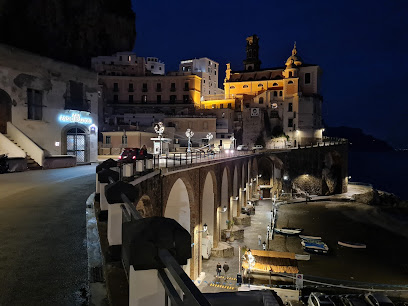
Ristorante Lido Azzurro
Experience authentic Italian cuisine with breathtaking views at Ristorante Lido Azzurro on the stunning Amalfi Coast.
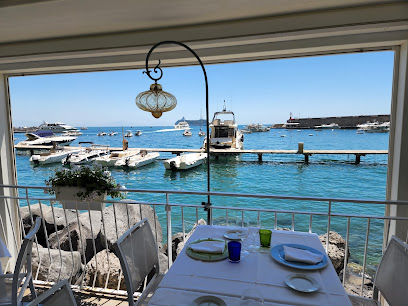
Markets, malls and hidden boutiques
Antichi Sapori d'Amalfi
Discover the essence of Amalfi at Antichi Sapori d'Amalfi, where local craftsmanship meets unforgettable flavors.
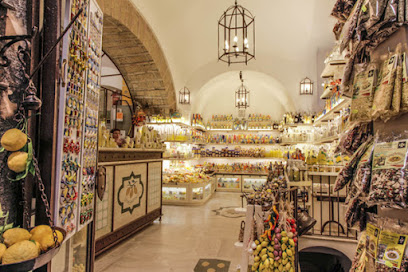
JP boutique
Explore unique fashion and quality craftsmanship at JP Boutique in Amalfi, where Italian style meets Mediterranean charm.
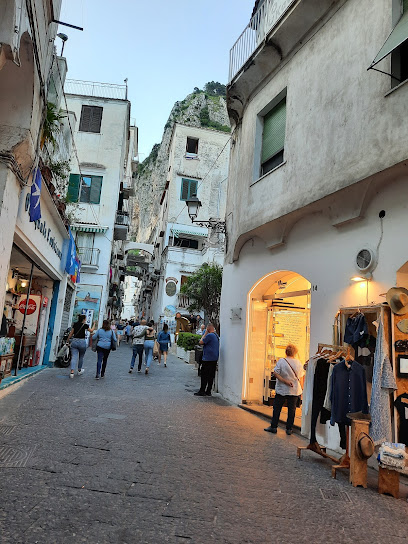
Bazar Florio
Explore Bazar Florio in Amalfi for exquisite leather goods, where craftsmanship meets style in the heart of Italy's stunning coast.
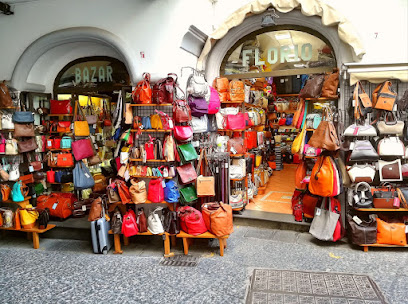
Antica Sartoria by Giacomo Cinque
Discover the essence of Italian fashion at Antica Sartoria by Giacomo Cinque, a charming boutique in Amalfi offering unique, handcrafted clothing.
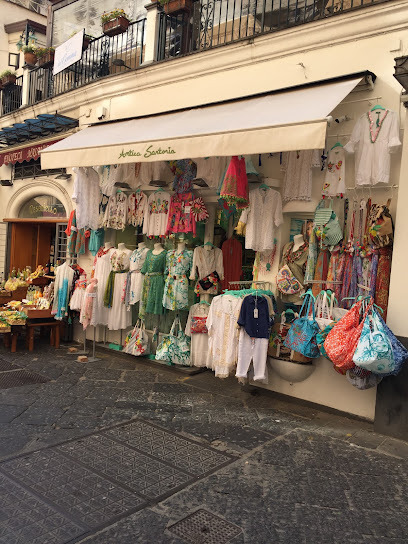
Finery Di D'Alessandro Antonietta & C.
Explore the exquisite fashion and accessories at Finery Di D'Alessandro Antonietta & C. in Amalfi, where elegance meets Italian craftsmanship.
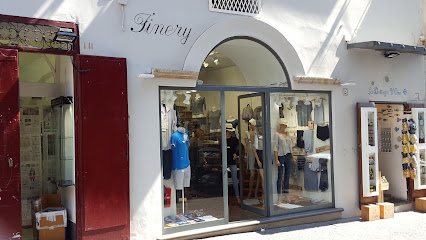
La Bottega D' Oro
Discover a treasure trove of exquisite wines at La Bottega D' Oro, Amalfi's premier wine store, perfect for enthusiasts and casual drinkers alike.
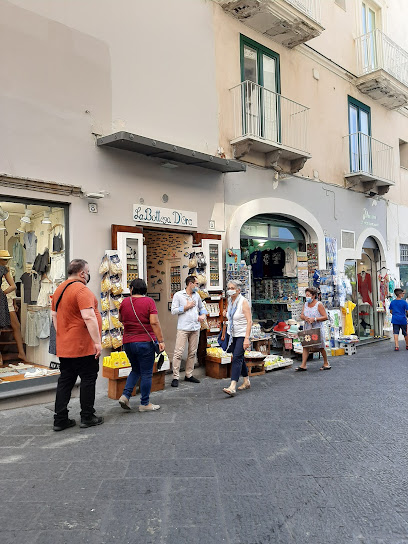
Ceramiche Il Ninfeo
Explore the exquisite craftsmanship of Italian ceramics at Ceramiche Il Ninfeo, a charming pottery store on the Amalfi Coast.
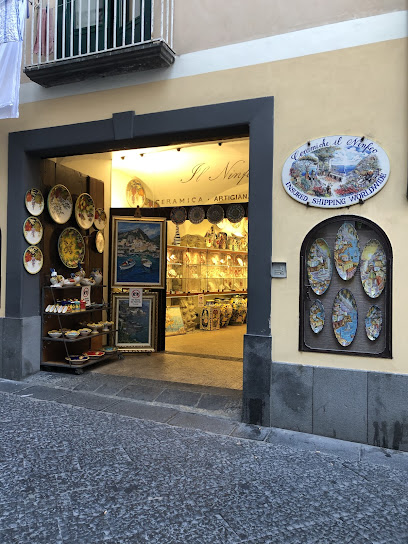
Marinerie di Andrea Colonnese
Explore Marinerie di Andrea Colonnese in Amalfi for unique nautical crafts and fishing gear that capture the essence of coastal adventures.
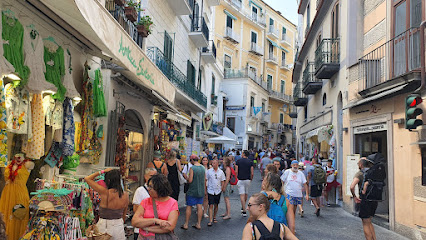
La Boutique del Gusto
Explore Amalfi's Culinary Delights at La Boutique del Gusto - Your Gateway to Local Flavors and Italian Specialties.
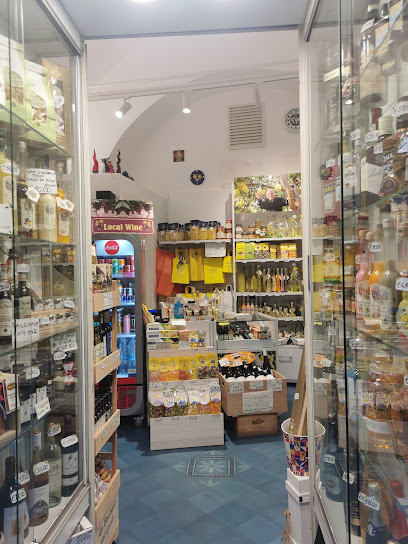
Shop Altracostiera
Discover unique handcrafted pottery and local handicrafts at Shop Altracostiera, a treasure trove on the Amalfi Coast showcasing the region's artistic spirit.
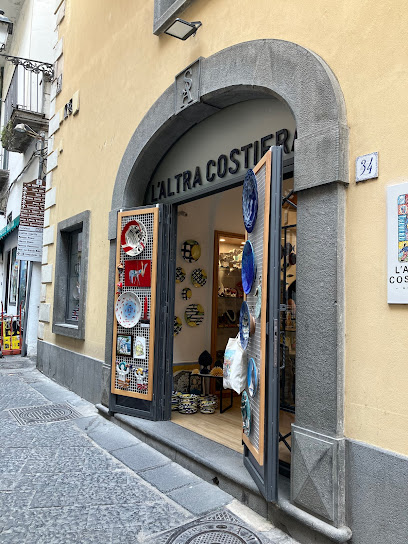
ModAmalfi
Experience the essence of Amalfi through fashion at ModAmalfi, where exquisite linen dresses and stylish apparel await.
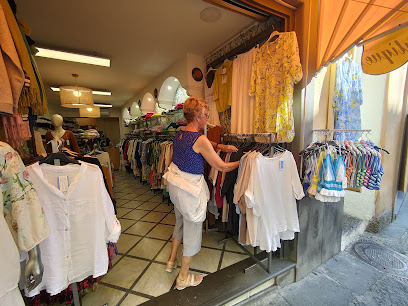
ANGELA ROMANO AMALFI
Explore the elegance and charm of Italian fashion at Angela Romano Amalfi, a unique clothing store in the heart of Amalfi.
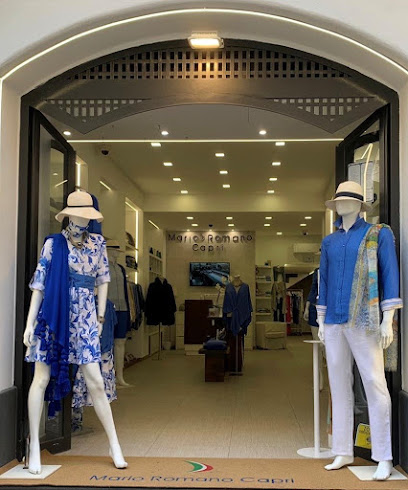
Boutique Clarice Di Pellegrino Clarice
Discover unique women's clothing and exquisite crafts at Boutique Clarice Di Pellegrino Clarice in the heart of Amalfi.
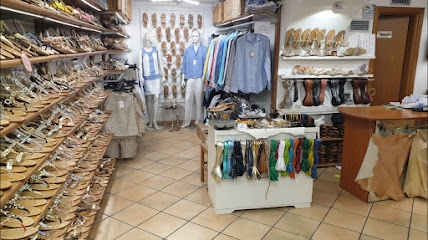
Il Cuoiaio di Bellogrado Pierino
Discover exquisite handcrafted leather goods at Il Cuoiaio di Bellogrado Pierino in Amalfi, a must-visit destination for style and quality.
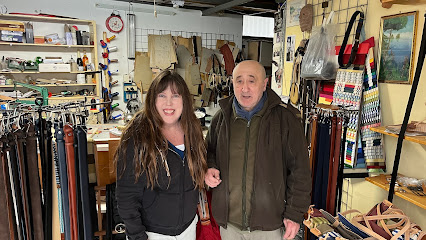
Boutique Lilliput Di Camera Rita
Discover stylish children's clothing at Boutique Lilliput in the heart of Amalfi, a charming destination for families exploring the beautiful Amalfi Coast.
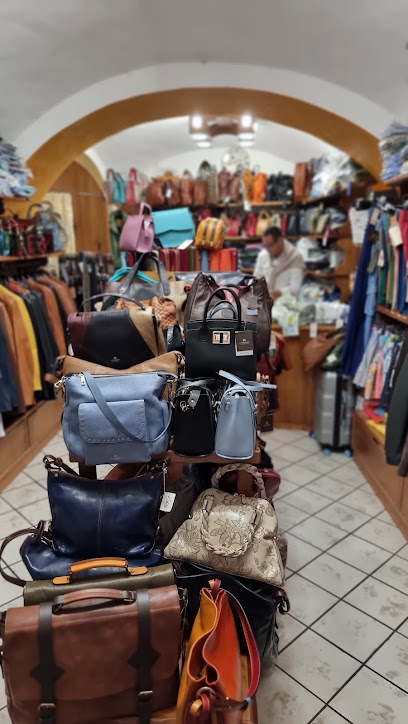
Essential bars & hidden hideouts
Bar Francese
Experience the heart of Amalfi at Bar Francese, where rich espresso meets local charm in a stunning Piazza Duomo setting.
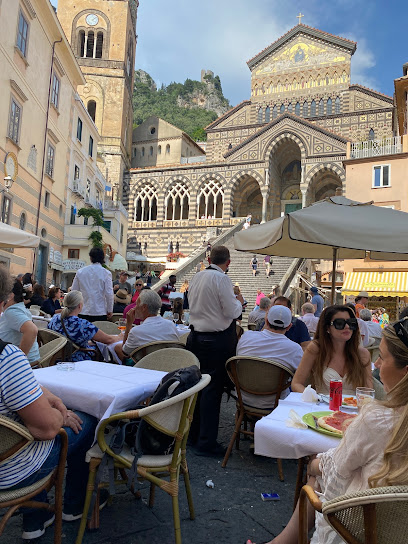
G.A.S. Bar
Discover the heart of Amalfi's culinary delights at G.A.S. Bar, where delicious pizzas and refreshing drinks await in a vibrant atmosphere.
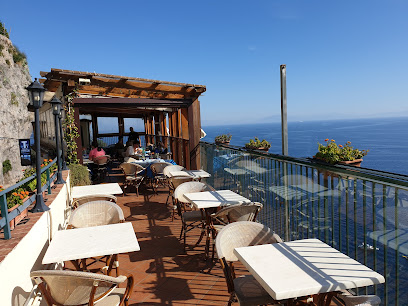
Bar Della Valle
Discover the delightful Bar Della Valle in Amalfi, where authentic Italian coffee and pastries meet a vibrant coastal atmosphere.
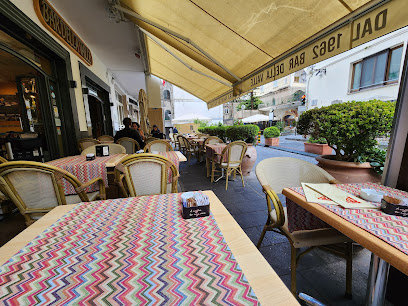
Amalfi Terminal
Experience the vibrant flavors of Amalfi at Amalfi Terminal, a charming gastropub offering delicious local cuisine and stunning coastal views.
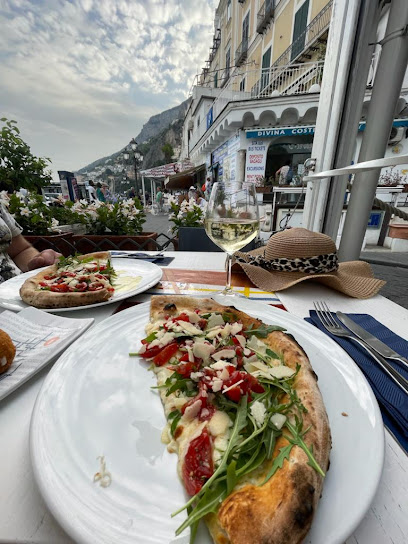
Gerry's pub
Discover the charm of Amalfi at Gerry's Pub, where authentic Italian cuisine meets a vibrant pub atmosphere in a breathtaking coastal setting.
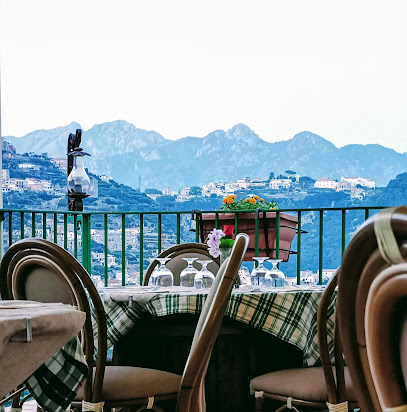
Baglio Amalfi Italian Bistrò Cucina , vino&drinks
Savor the authentic taste of the Amalfi Coast at Baglio Amalfi Bistrò, where Italian flavors and Mediterranean charm meet.
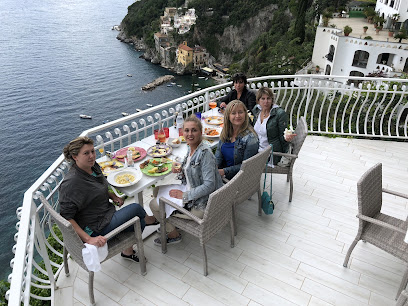
Masaniello Art Café
Experience the Heart of Amalfi's Art and Culinary Scene at Masaniello Art Café, Where Every Sip and Bite Tells a Story.
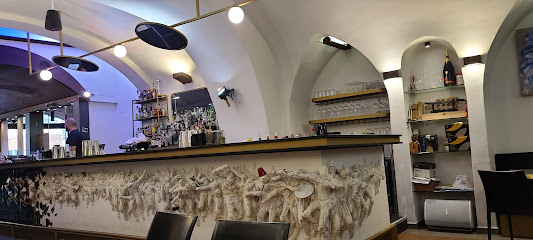
Silver Moon
Discover the vibrant Silver Moon bar in Amalfi, where culinary delights meet breathtaking coastal views for an unforgettable experience.
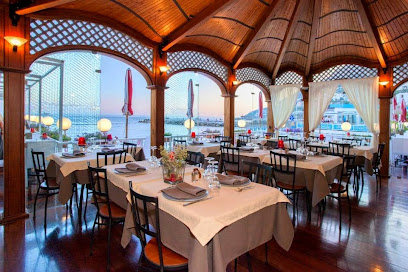
Enoteca e Gastronomia il Protontino
Discover the flavors of Italy at Enoteca e Gastronomia il Protontino, where exceptional cuisine meets a warm, inviting atmosphere in Amalfi.
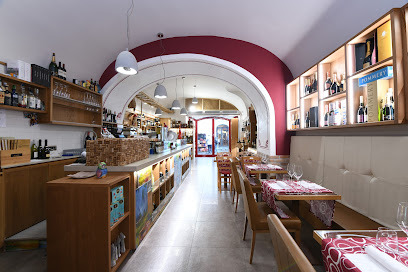
Blu Sirena
Experience the flavors of the Amalfi Coast at Blu Sirena, a charming bar and bistro with breathtaking views and delightful cuisine.
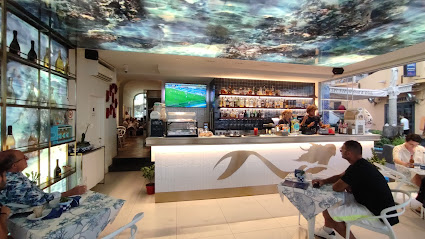
Gran Caffè
Experience the rich flavors of Italy at Gran Caffè, Amalfi's premier espresso bar, offering delicious local cuisine and breathtaking coastal views.
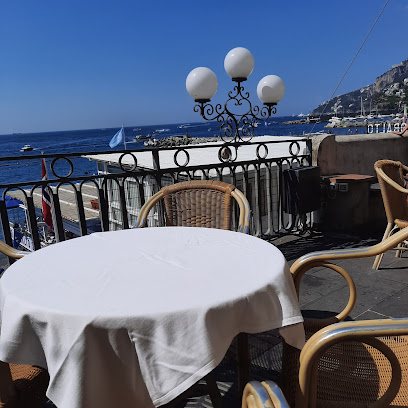
La Dolce Vita
Discover La Dolce Vita in Amalfi, a cozy bar and cafe perfect for indulging in Italian delicacies and enjoying breathtaking coastal views.
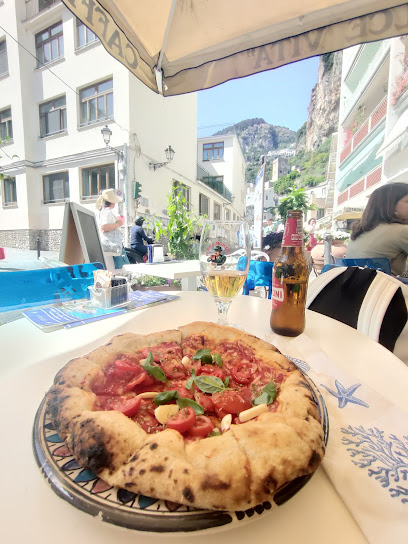
Cocktail Bar
Discover Amalfi's vibrant cocktail bar, where refreshing drinks and stunning views create an unforgettable atmosphere.
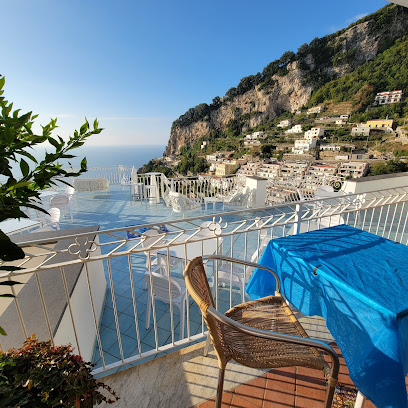
Bar Savoia
Experience the charm of Amalfi at Bar Savoia, where authentic Italian flavors and a vibrant atmosphere await you.
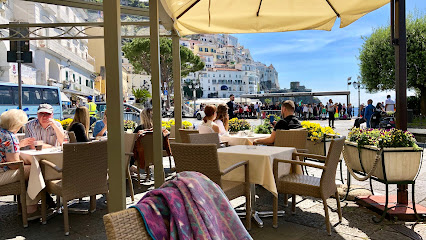
Travel experiences inspired by this city
Explore more travel diariesLocal Phrases
-
- HelloCiao
[chow] - GoodbyeArrivederci
[ah-ree-veh-dehr-chee] - YesSì
[see] - NoNo
[noh] - Please/You're welcomePer favore/Prego
[pehr fah-voh-reh/preh-goh] - Thank youGrazie
[graht-zee-eh] - Excuse me/SorryMi scusi/Scusa
[mee skoo-zee/skoo-zah] - How are you?Come stai?
[koh-meh stai] - Fine. And you?Bene. E tu?
[beh-neh. eh too] - Do you speak English?Parli inglese?
[pahr-lee een-gleh-zeh] - I don't understandNon capisco
[nohn kah-pee-skoh]
- HelloCiao
-
- I'd like to see the menu, pleaseVorrei vedere il menù, per favore
[vohr-ray veh-deh-reh eel meh-noo, pehr fah-voh-reh] - I don't eat meatNon mangio carne
[nohn mahn-joh kahr-neh] - Cheers!Salute!
[sah-loo-teh] - I would like to pay, pleaseVorrei pagare, per favore
[vohr-ray pah-gah-reh, pehr fah-voh-reh]
- I'd like to see the menu, pleaseVorrei vedere il menù, per favore
-
- Help!Aiuto!
[ah-yoo-toh] - Go away!Vai via!
[vah-ee vee-ah] - Call the Police!Chiamate la polizia!
[kyah-mah-teh lah poh-lee-tsya] - Call a doctor!Chiamate un dottore!
[kyah-mah-teh oon doh-toh-reh] - I'm lostMi sono perso
[mee soh-noh pehr-soh] - I'm illMi sento male
[mee sehn-toh mah-leh]
- Help!Aiuto!
-
- I'd like to buy...Vorrei comprare...
[vohr-ray kohm-prah-reh] - I'm just lookingSto solo guardando
[stoh soh-loh gwar-dahn-doh] - How much is it?Quanto costa?
[kwahn-toh koh-stah] - That's too expensiveÈ troppo caro
[eh trohp-poh kah-roh] - Can you lower the price?Può abbassare il prezzo?
[pwoh ahb-bahs-sah-reh eel preh-tsoh]
- I'd like to buy...Vorrei comprare...
-
- What time is it?Che ora è?
[keh oh-rah eh] - It's one o'clockÈ l'una
[eh loo-nah] - Half past (10)Le dieci e mezza
[leh dee-eh-chee eh meht-sah] - MorningMattina
[maht-tee-nah] - AfternoonPomeriggio
[poh-meh-ree-joh] - EveningSera
[seh-rah] - YesterdayIeri
[yeh-ree] - TodayOggi
[oh-jee] - TomorrowDomani
[doh-mah-nee] - 1Uno
[oo-noh] - 2Due
[doo-eh] - 3Tre
[treh] - 4Quattro
[kwah-troh] - 5Cinque
[cheen-kweh] - 6Sei
[seh-ee] - 7Sette
[seht-teh] - 8Otto
[oh-toh] - 9Nove
[noh-veh] - 10Dieci
[dee-eh-chee]
- What time is it?Che ora è?
-
- Where's a/the...?Dov'è un/il...?
[doh-veh oon/eel] - What's the address?Qual è l'indirizzo?
[kwahl eh leen-dee-ree-tsoh] - Can you show me (on the map)?Puoi mostrarmi (sulla mappa)?
[pwah-ee mohs-trar-mee soo-lah mahp-pah] - When's the next (bus)?Quando è il prossimo (autobus)?
[kwahn-doh eh eel prohs-see-moh ow-toh-boos] - A ticket (to ....)Un biglietto (per ....)
[oon beel-yet-toh pehr]
- Where's a/the...?Dov'è un/il...?
History of Amalfi
-
Amalfi was one of the first maritime republics in Italy, rising to prominence in the 9th century. It played a crucial role in Mediterranean trade, establishing commercial bases in North Africa, Byzantium, and the Levant. The Amalfitan merchants were known for their prowess in trade, dominating the seas and establishing a powerful navy.
-
In the 12th century, Amalfi produced the 'Tabula Amalphitana,' a code of maritime law that influenced naval legislation across the Mediterranean. This document regulated issues such as ship ownership, the crew's rights, and maritime insurance, reflecting the city’s advanced understanding of naval commerce and legal frameworks.
-
Constructed in the 9th century, the Cathedral of Sant'Andrea is a landmark in Amalfi. It houses relics of Saint Andrew, brought to the city in 1208. The cathedral's stunning Arab-Norman architecture, bronze doors from Constantinople, and the Cloister of Paradise, an elegant Arabic-style courtyard, are testaments to Amalfi's rich cultural and religious heritage.
-
Amalfi played a vital role during the Crusades, providing ships and support to the Christian armies. The city's strategic position and maritime strength enabled it to supply and transport crusaders to the Holy Land. Many Amalfitan knights distinguished themselves during these campaigns, further enhancing the city's prestige.
-
Amalfi's decline began in the late 11th century, exacerbated by the Norman conquest in 1137. The city was sacked and incorporated into the Kingdom of Sicily. Despite this, Amalfi maintained a degree of autonomy and continued to thrive as a trading center, albeit not at the same level of dominance it once enjoyed.
-
Lemons have been cultivated in Amalfi since the 10th century, integral to the region's agriculture and cuisine. The 'sfusato amalfitano,' a unique variety, is renowned for its aromatic zest and sweet flavor. Lemon cultivation shaped the terraced landscape and contributed to the local economy, with products like Limoncello becoming iconic symbols of the Amalfi Coast.
-
Amalfi's medieval architecture and urban layout reflect its historical importance. Narrow, winding streets, arched alleyways, and ancient stone buildings characterize the town. The Arsenal of the Maritime Republic, a medieval shipyard, showcases the city's naval prowess, while the Paper Museum highlights Amalfi's early papermaking industry, which dates back to the 13th century.
-
Today, Amalfi is a UNESCO World Heritage site, attracting visitors worldwide. Its historical sites, stunning coastal views, and vibrant culture make it a top tourist destination. The preservation of its historical buildings and traditions ensures that visitors can experience the rich history and culture that define Amalfi.
Amalfi Essentials
-
Amalfi is located on the Amalfi Coast in southern Italy, within the province of Salerno. The nearest major airport is Naples International Airport (Aeroporto di Napoli-Capodichino), approximately 70 kilometers away. From Naples, you can take a bus, train, or rent a car to reach Amalfi. The most scenic route is the coastal road (SS163), which offers breathtaking views of the Mediterranean Sea. Another option is to take a ferry from Naples or Salerno to Amalfi, which provides a unique perspective of the coastline.
-
Amalfi is a compact town, and many of its attractions are within walking distance. For longer trips along the Amalfi Coast, local SITA buses are available and connect to nearby towns like Positano and Ravello. Taxis are also available but can be expensive. Renting a scooter or a car is an option, but parking can be challenging. During the summer months, ferries and boats operate between Amalfi and other coastal towns, offering a scenic and convenient mode of transportation.
-
The official currency in Italy is the Euro (EUR). Credit cards are widely accepted in hotels, restaurants, and shops in Amalfi. However, it is advisable to carry some cash, especially for small purchases, local markets, and in case you visit more remote areas. ATMs are readily available throughout Amalfi, but be mindful of potential fees when withdrawing cash.
-
Amalfi is generally a safe destination for tourists. However, like any popular tourist area, it is essential to be cautious of pickpockets, especially in crowded places like markets and busier streets. Avoid walking alone at night in poorly lit areas. The town is relatively free of high-crime neighborhoods, but staying vigilant and aware of your surroundings is always recommended.
-
In case of emergency, dial 112, the European emergency number. There is a local police station (Carabinieri) and a medical clinic in Amalfi. For more serious medical emergencies, the nearest hospital is in Salerno. It is recommended to have travel insurance that covers medical emergencies. Pharmacies (Farmacia) are available in town for minor health issues and over-the-counter medications.
-
Fashion: Do dress stylishly but modestly, especially when visiting churches. Avoid beachwear outside of beach areas. Religion: Do respect local customs and traditions, including covering shoulders and knees when entering religious sites. Public Transport: Do be respectful and patient on public transport. Don't be loud or disruptive. Greetings: Do greet people with a friendly 'Buongiorno' (Good morning) or 'Buonasera' (Good evening). A handshake is common. Eating & Drinking: Do try local specialties and be open to culinary experiences. Don't rush meals; Italians value leisurely dining.
-
To experience Amalfi like a local, visit the town's small markets and buy fresh produce and local specialties like limoncello. Engage with locals and ask for their recommendations; they are usually friendly and proud of their heritage. Don't miss the chance to explore the lesser-known paths and trails around Amalfi for stunning views. For an authentic experience, attend local festivals and events, such as the Festival of St. Andrew in June and November, which celebrates the town's patron saint.
Trending Landmark in Amalfi
-
Amalfi Coast
-
Villa Rufolo
-
Amalfi Harbor Marina Coppola
-
Museo della Carta
-
Duomo di Amalfi
-
Costiera Amalfitana Positano
-
Torre dello Ziro
-
Lido Degli Artisti
-
Castello Lauritano
-
Lido delle Sirene
-
Saint Andrew's Fountain Amalfi
-
Antico Arsenale della Repubblica di Amalfi
-
Chiostro del Paradiso
-
Amalfi Boat Tour S.r.l
-
Villa Romana e Antiquarium
Nearby Cities to Amalfi
-
Things To Do in Ravello
-
Things To Do in Positano
-
Things To Do in Pompeii
-
Things To Do in Sorrento
-
Things To Do in Herculaneum
-
Things To Do in Capri
-
Things To Do in Naples
-
Things To Do in Matera
-
Things To Do in Bari
-
Things To Do in Rome
-
Things To Do in St. Peter's Square
-
Things To Do in Apostolic Palace
-
Things To Do in Vatican Necropolis
-
Things To Do in St. Peter's Basilica
-
Things To Do in Sistine Chapel

























